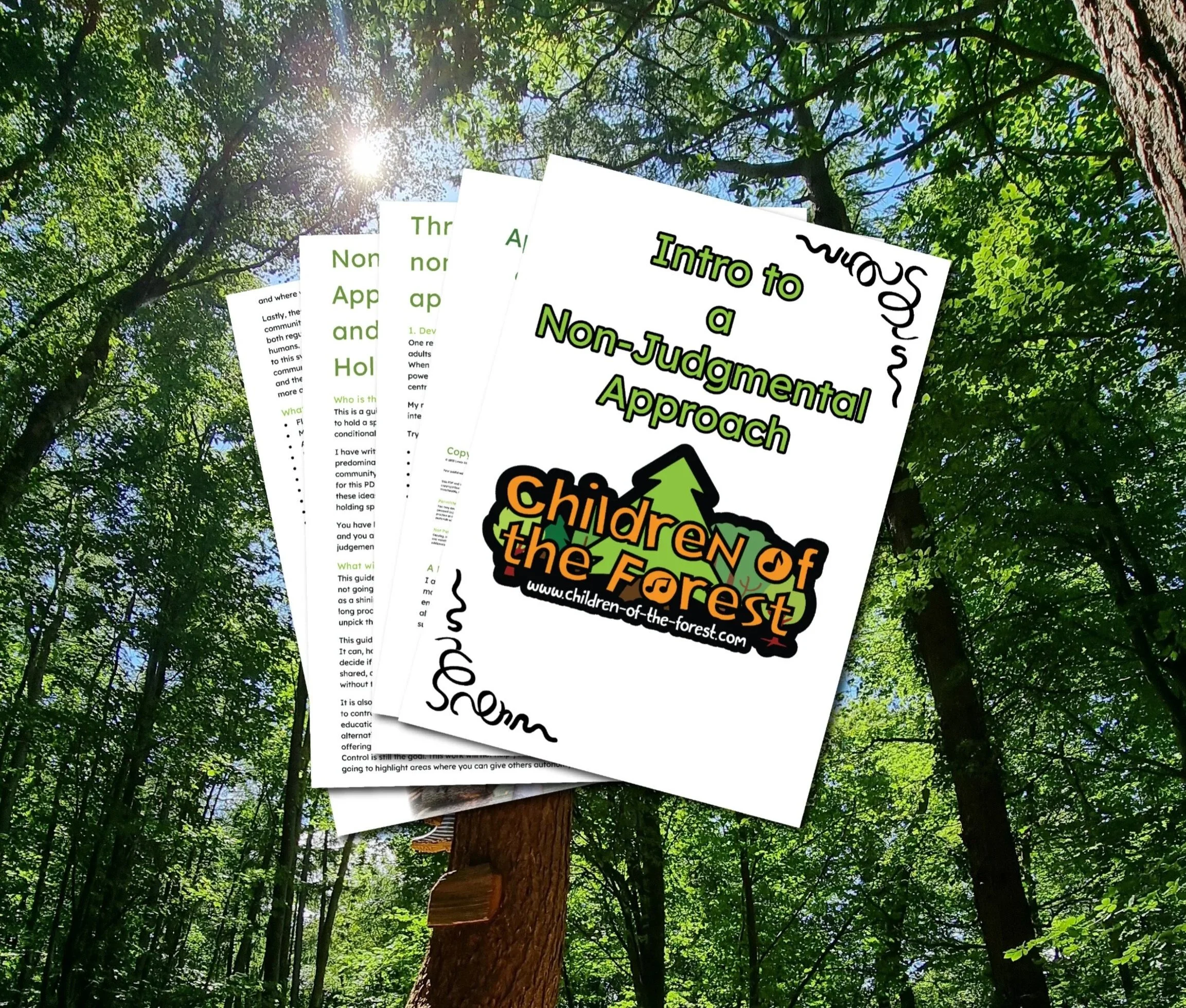Intro to Non-judgemental Approaches in Education and Community Space Holding
Intro to Non-judgemental Approaches in Education and Community Space Holding
This digital guide gives you the language, habits, and frameworks to hold groups with care and clarity. You will protect bodies and belongings, reduce shame, increase participation, and build a culture where empathy and honest repair are everyday practice.
Who it is for
Educators, youth workers, Forest School leaders, community organisers, and anyone who holds groups and wants fewer power struggles, steadier regulation, and more trust.
What you will take away
Language swaps that lower heat and keep dignity intact.
A five step flow for in the moment decisions.
Practical scripts for praise, dysregulation, boundaries, and repair.
Ways to replace judgement with observation and impact.
Tools for safer returns after ruptures, and stronger group belonging.
What is inside
Foundations
Why non judgemental practice works, what it does and does not do, and how to keep autonomy while protecting safety.Three big reasons
Grow genuine empathy, stay connected during dysregulation, and build a secure base that invites return.Language in action
Declarative phrasing, I statements, and I wonder prompts, with ready to use examples.Boundaries without shame
Positioning, proximity, and resource decisions that protect people and property.Common triggers and reframes
Praise, harming others, manners and expectations, immediate threats versus future risks.Reflection prompts
Quick checks you can use to review sessions and improve steadily.
FAQs
Is this relevant outside a Forest School setting?
Yes. The language and habits work in classrooms, youth work, clubs, and community projects.
Does this tell people what to do?
It offers options, scripts, and flows that preserve autonomy and consent while protecting safety.How do updates work?
If a revised edition is released, purchasers will be notified by email with update options.

